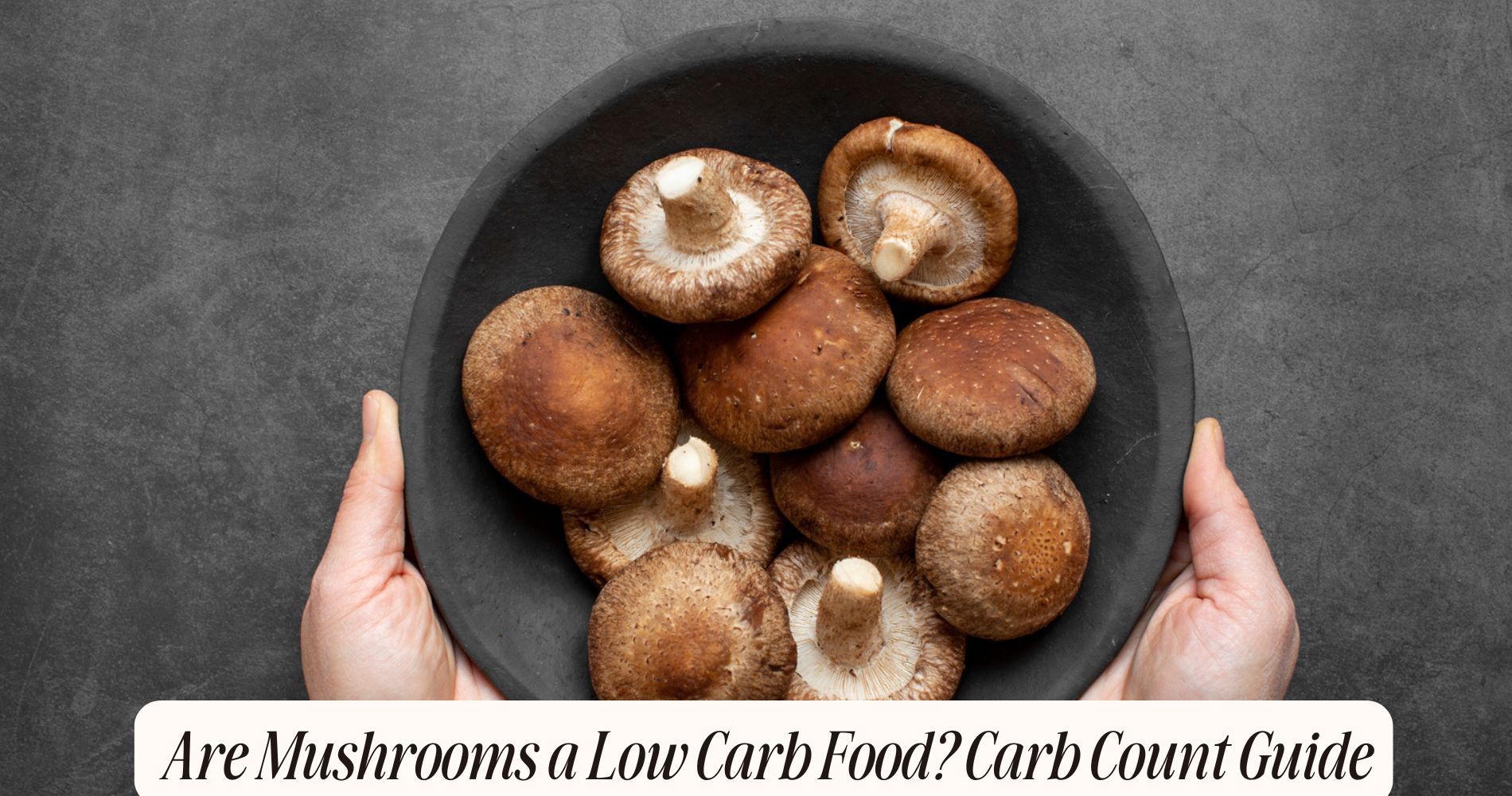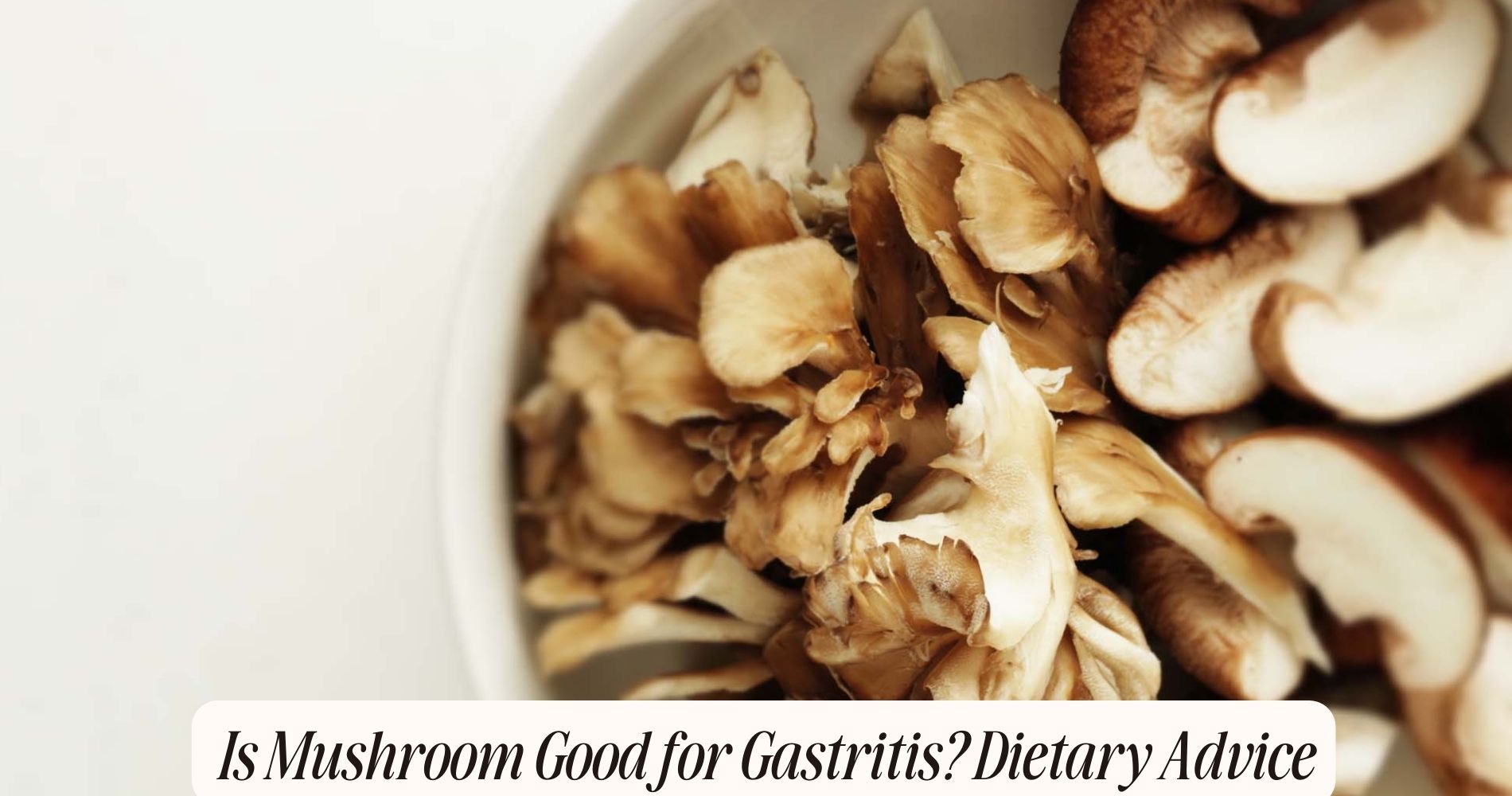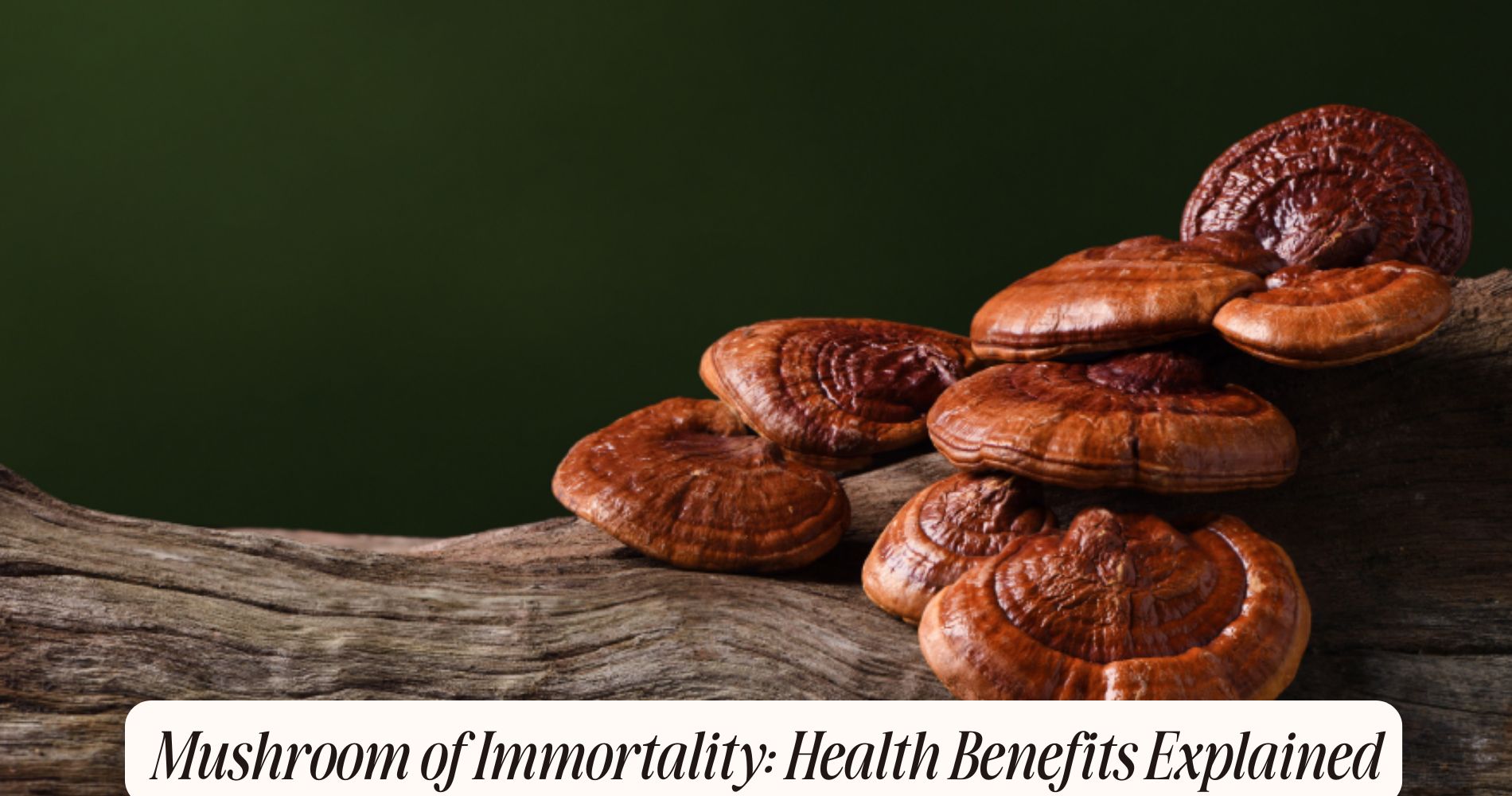
Are Mushrooms a Low Carb Food? Carb Count Guide
Are mushrooms a low carb food? Yes, mushrooms are a low-carb food. Varieties like white button and cremini mushrooms have only 2.3 to 3.3 grams of carbs per 100 grams, making them a fantastic choice for a low-carb diet. Shiitake mushrooms are slightly higher at 6.8 grams, but still remain lower than many vegetables. Beyond their low carb content, mushrooms are also packed with nutrients like B vitamins, selenium, and antioxidants. This makes them a nutritious addition to your meals, supporting health goals while keeping carbs in check. Keep exploring to discover how you can include these nutrient-rich fungi in your diet with delicious recipes and cooking tips.
Nutritional Breakdown of Mushrooms
How exactly do mushrooms stack up nutritionally?
When you look at different mushroom varieties, you'll find they're packed with nutrients while being low in calories and fat. Mushrooms like white button, cremini, portobello, and shiitake each bring their unique benefits to the table. They're rich in essential vitamins and minerals, such as B vitamins (riboflavin, niacin, and pantothenic acid), selenium, and copper, which support energy production and immune function.

In terms of culinary uses, mushrooms are incredibly versatile. You can add them to salads, soups, stir-fries, and even use them as a meat substitute in dishes like mushroom burgers or stuffed mushrooms. Their high water content (around 90%) means they're hydrating and help you feel full, which can aid in weight management.
What sets mushrooms apart is their content of antioxidants like ergothioneine and glutathione, which help combat oxidative stress and could lower the risk of chronic diseases. They're also a good source of dietary fiber, which promotes digestive health.
Carb Content in Common Varieties
When you're managing your carb intake, it's crucial to know that most common mushroom varieties are incredibly low in carbohydrates, making them an excellent choice for low-carb diets.
White button mushrooms, one of the most popular types, contain just 2.3 grams of carbs per 100 grams. Similarly, cremini mushrooms, which are fundamentally mature white mushrooms, have approximately 3.3 grams of carbs per 100 grams.
Portobello mushrooms, known for their meaty texture, also fit well into a low-carb regimen with around 3.9 grams of carbs per 100 grams. Shiitake mushrooms, often used in Asian cuisine, contain slightly more at 6.8 grams of carbs per 100 grams, but are still relatively low compared to many other foods. Oyster mushrooms are another excellent option with only 3.3 grams of carbs per 100 grams.
These low carb counts make mushroom varieties versatile and nutritious additions to your diet. Not only are they low in carbs, but they're also packed with vital nutrients like vitamins D and B, antioxidants, and fiber.
Consequently, incorporating a variety of mushrooms can help you maintain your low-carb goals while enjoying diverse flavors and textures.
Comparing Mushrooms to Other Foods
Compared to starchy vegetables like potatoes, which can contain over 17 grams of carbs per 100 grams, mushrooms offer a noticeably lower carbohydrate content, making them an ideal choice for those on low-carb diets. For example, white button mushrooms contain about 3.26 grams of carbs per 100 grams, considerably lower than their starchy counterparts. This characteristic is consistent across various mushroom varieties such as portobello, shiitake, and cremini.

Analyzing the carbohydrate content of mushrooms in comparison to other vegetables highlights their suitability for low-carb eating plans. Bell peppers, for instance, have around 6 grams of carbs per 100 grams, while spinach contains about 3.63 grams. Though these vegetables also offer low carb counts, mushrooms still stand out due to their unique nutrient profile and culinary uses.
Mushrooms can be seamlessly integrated into a variety of dishes, from salads to stir-fries, and even as meat substitutes in burgers and stews. Their versatility and low carb content make them a valuable addition to your diet. Whether you're sautéing them with garlic or adding them to a savory omelet, mushrooms provide a nutritious, low-carb option for diverse culinary applications.
Benefits of Eating Mushrooms
You'll find mushrooms can greatly boost your immune system thanks to their high levels of beta-glucans.
They're also rich in antioxidants, which help combat oxidative stress and reduce inflammation.
Incorporating mushrooms into your diet can provide these essential health benefits while keeping your carb intake low.
Boosts Immune System
Incorporating mushrooms into your diet can greatly enhance your immune system's functionality, thanks to their rich content of bioactive compounds like beta-glucans. These compounds play a vital role in modulating your immune response. Beta-glucans are known to stimulate the activity of macrophages, natural killer cells, and other immune cells, making your body more efficient in fighting off infections and diseases.
Mushrooms like shiitake, maitake, and reishi are particularly noted for their immune-boosting properties. The fungal benefits of these varieties are well-documented in scientific literature. For instance, reishi mushrooms contain polysaccharides that have been shown to enhance the proliferation of white blood cells, thereby fortifying your body's first line of defense against pathogens.

Moreover, mushrooms are a natural source of selenium, an essential mineral that also contributes to a robust immune system. Selenium aids in the production of cytokines, proteins that regulate the intensity and duration of immune responses.
Rich in Antioxidants
Often overlooked, mushrooms are a powerhouse of antioxidants that can considerably contribute to reducing oxidative stress in your body. These antioxidant properties play an essential role in neutralizing free radicals, which are unstable molecules that can damage cells and lead to chronic diseases like cancer and heart disease.
Mushrooms contain a variety of potent antioxidants, including ergothioneine and glutathione. Research has shown that ergothioneine, a unique antioxidant found abundantly in mushrooms, helps protect your cells from oxidative damage. Glutathione, another vital antioxidant, supports detoxification processes and boosts overall cellular health. Both compounds have been linked to reduced inflammation and improved immune function.
Incorporating mushrooms into your diet can offer significant health benefits. For example, the antioxidant properties in mushrooms may help slow down the aging process by protecting your cells from damage. Studies suggest that a diet rich in antioxidants can improve brain function, reduce the risk of cognitive decline, and enhance mental clarity.
Low-Carb Mushroom Recipes
Mushrooms' versatility makes them a perfect ingredient for a variety of low-carb recipes that are both delicious and nutritious. One popular option is stuffed mushrooms. By filling them with low-carb ingredients like spinach, cheese, and minced garlic, you create a savory dish that's rich in flavor but low in carbohydrates. Each stuffed mushroom cap typically contains about 1-2 grams of carbs, making them an excellent choice for a keto diet.
Another fantastic low-carb option is mushroom risotto. Traditional risotto is high in carbs due to its rice content, but you can substitute rice with finely chopped cauliflower. This alternative not only slashes the carb count but also adds extra nutrients. Sauté mushrooms with onions and garlic, then stir in the cauliflower rice. Add a splash of bone broth and a sprinkle of Parmesan cheese for a creamy, satisfying dish. A serving of this low-carb mushroom risotto can contain as little as 5 grams of carbs, depending on the specific ingredients used.

Both of these recipes showcase how mushrooms can be a cornerstone of a low-carb diet, providing essential nutrients and robust flavors without compromising your carbohydrate goals.
Tips for Incorporating Mushrooms
Incorporating mushrooms into your meals can greatly boost their nutritional value while keeping carbs low.
You'll find that cooking methods play an essential role in preserving their health benefits, and pairing them with the right foods can enhance both flavor and nutrient absorption.
For best results, consider sautéing mushrooms in olive oil and combining them with high-protein ingredients like chicken or tofu.
Cooking Methods Matter
Choosing the right cooking methods can enhance the nutritional benefits and flavor profiles of mushrooms, making them a versatile addition to a low-carb diet.
Sautéing techniques, for instance, allow you to quickly cook mushrooms while preserving their nutrient content. Use a minimal amount of healthy fats like olive oil or avocado oil to keep the dish low in carbs. Sautéing at a medium-high temperature guarantees mushrooms retain their moisture, resulting in a tender yet flavorful texture.
Grilling methods also offer a healthful way to prepare mushrooms. When grilled, mushrooms develop a smoky flavor that can elevate any dish. To grill them effectively, brush the mushrooms lightly with oil and season with herbs or spices. Grill them over medium heat for about 5-7 minutes per side, depending on their size. This method keeps the carb count low while adding a rich, savory taste.
Both sautéing and grilling maintain the low-carb integrity of mushrooms, enhancing their natural flavors without the need for carb-heavy additives. By choosing these cooking techniques, you can enjoy mushrooms in a way that supports your health goals and fits seamlessly into a low-carb lifestyle.
Perfect Meal Pairings
To make the most of mushrooms in your low-carb meals, pair them with nutrient-dense vegetables and lean proteins for a balanced and satisfying dish.
One great mushroom pairing is sautéing them with spinach and bell peppers, which adds a burst of color and essential vitamins. These vegetables complement the earthy flavor profiles of mushrooms while keeping the carb count minimal.
Another effective strategy is to incorporate mushrooms into lean protein dishes. For example, you can stuff chicken breasts with a mixture of mushrooms, garlic, and herbs. This combination not only adds depth to the dish but also keeps it low in carbohydrates.

Similarly, mushrooms can be added to stir-fries with lean cuts of beef or tofu, providing a satisfying texture and enhancing the overall flavor profile.
You can also integrate mushrooms into your salads. Adding sautéed or raw mushrooms to a bed of leafy greens, avocado, and cherry tomatoes creates a nutrient-packed, low-carb meal.
The mushrooms' umami flavor pairs well with various dressings, from tangy vinaigrettes to creamy options, making your salads both delicious and nutritious.
Frequently Asked Questions
Can Mushrooms Cause Digestive Issues for Some People?
Yes, mushrooms can cause digestive issues for some people. Mushroom intolerance happens when your body lacks specific digestive enzymes, leading to symptoms like bloating, gas, or diarrhea. Always monitor your body's response to mushrooms.
Are There Any Mushrooms That Should Be Avoided Due to Toxicity?
Yes, you should avoid certain toxic mushroom varieties like Amanita phalloides. Mushroom poisoning symptoms can include nausea, vomiting, and liver failure. Always consult a reliable guide or expert before consuming wild mushrooms to guarantee safety.
How Should Mushrooms Be Stored for Maximum Freshness?
For ideal storage and maximum shelf life, keep mushrooms in a paper bag in the fridge. This method allows them to breathe and prevents moisture buildup, maintaining their freshness and nutritional value longer.
Do Mushrooms Lose Nutritional Value When Cooked?
When you cook mushrooms, nutrient retention depends on your cooking methods. Sautéing and grilling help preserve vitamins and minerals, while boiling may lead to nutrient loss. Ideal cooking methods guarantee you get the most nutritional benefits.
Can Mushrooms Be Part of a Ketogenic Diet?
Yes, you can include mushroom varieties in a ketogenic meal. They're low in carbs and high in nutrients, fitting perfectly into your keto diet while providing essential vitamins and minerals for overall health.
Conclusion
Incorporating mushrooms into your diet is a smart, health-focused choice.
They're low in carbs and packed with essential nutrients, making them ideal for those watching their carb intake.
Compared to many other foods, mushrooms offer a unique combination of low calories and high nutritional value.
By adding them to your meals, you'll enjoy a tasty, versatile ingredient that supports your overall well-being.
Start experimenting with low-carb mushroom recipes today, and reap the health benefits!




